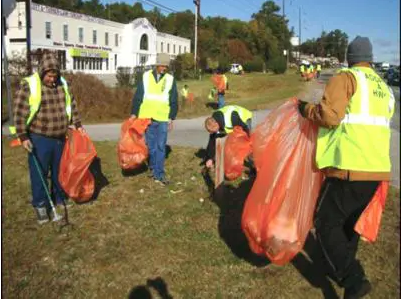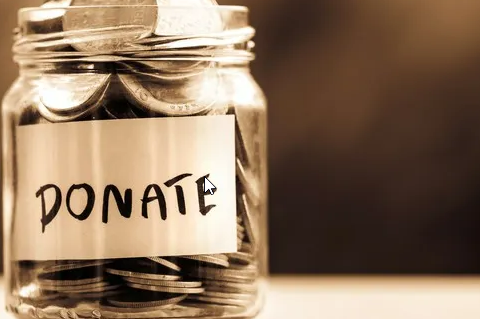In criminal cases, sentencing serves a two-fold purpose as punitive and rehabilitative. The judge can determine to order community service (unpaid work performed in the community), in lieu of other sentencing options such as fines, incarceration, restitution or probation.
How if you do not complete your community service? Can you end up imprisoned? Well, it’s very important for those who conduct community service to know whether you should perform community service or not. Okay, let’s dive into our post to get the real information about it!

Can You Go to Jail for Not Finishing Community Service?
Yes, of course! If you cannot complete your community service, you may end up in prison, especially if you do not have a good explanation as to why you did not complete the community service hours. Then, your probation might be revoked for your criminal offense and the result is jail time.
Whether or not you actually have your probation revoked, if so, you definitely will receive jail time remains to be decided by the judge hearing your case. Well, there’s no guarantee that you will receive jail time because of the failure to abide by all terms of your probation.
Aside from that, if the original charge which resulted in the community service is a misdemeanor, of course the community service may be converted to a fine or to jail time. While, if the community service is part of a felony probation deal and if you fail to complete community service work, it is a violation of conditions of probation and could result in probation being revoked and the original sentence being imposed.
Why Does a Judge Order Community Service to an Offender?
As we’ve mentioned, sentencing in criminal cases has a two-fold purpose as punitive and rehabilitative. Well, community service is one of the sentencing options that judges can utilize. The individual who conducts community service will not get paid upon the work performed in the community.
Further, the judge can order community service or also give other sentencing options such as fines, incarceration, probation or restitution. In this case, ordering community service as part of a defendant’s sentence for a criminal conviction is not new.
In fact, it has become more common sentencing options in recent years. Some jurisdictions establish entire offices to handle the amount of community service that is doled out as part of criminal sentencing. Both state and federal systems actually take part in this practice.
What Are the Types of Community Services?
The judges will be able to incorporate community service into a defendant’s sentencing in multiple ways and for various types of offenses. The judges generally order community services for low-level property crimes or to first-time nonviolent offenders.
In the past, community service was frequently reserved for misdemeanor crimes. However, more judges have started to order community service in felony cases. Defendants with violent offense convictions will not have the choice to conduct community service to lighten their sentences.
An offender who was ordered for community service should perform a wide range of work, basically helping out nonprofit organizations, local business and government agencies.
For example, an offender probably works at an animal shelter or a homeless shelter, gives speeches at schools or to groups, helps in road cleanup, etc. in the case of a DUI conviction, the judge may order a defendant to speak at a school about the perils of drunk driving.
What Are the Types of Sentences?
It is known that community service becomes part of the judgment of conviction by one of two methods. Either the defense and prosecution agree on how it would be incorporated into the final sentence or the judge will order how it would be integrated into the defendant’s punishment.
Of course, the order will take several different forms, including:
-
- Condition of a sentence
This is part of the defendant’s sentence that requires completion of a certain number of community service hours within a specified amount of time. - Condition of probation
The defendant should complete community service to successfully complete probation if the community service is ordered as a condition of probation. - In lieu of jail time
In some cases, the judge will sentence the defendant to a certain number of days in jail. However, it will give the defendant the option to complete community service hours instead of sitting in jail. Of course, failure to complete the community service will result in jail time. - Alternative to paying a fine
Several defendants simply cannot afford to pay court-ordered fines and fees. Of course, some jurisdictions may allow defendants to engage in community service as an alternative to making payments.
- Condition of a sentence
When Can a Judge Use Court Ordered Community Service?
In this case, court-ordered community service is frequently restricted to first-time offenders or limited only to those who have committed misdemeanors. Of course, community service is seldom ordered by judges without the consent of the defendant, often as part of a plea agreement.
The use of community service for juvenile offenders is commonly the preferred means of punishment for young defendants who cannot afford to pay fines. A judge probably sometimes gives a defendant a list of local organizations which provide chances for community service.
It actually will help the defendant get started, that is very important, since a government official or independent agency should verify that the offender finished the community service within a specified time.
Additionally, rules around accepted community service will vary by jurisdiction. Courts may not accept service hours if there was compensation or if the service was done for a for-profit entity.
Some jurisdictions will not also allow service to be done for religious organizations. In this case, each state has certain rules and procedures for court-ordered community service. Of course, make sure to check on the law in your area.
In this case, a community service organization has no relation to the defendant’s crime. Certainly, the conditions should be reasonably related to the nature and circumstance of the offense. The requirements of community service interfered with the defendant’s ability to maintain a paying job and support the family.

A bookworm and researcher especially related to law and citizenship education. I spend time every day in front of the internet and the campus library.





